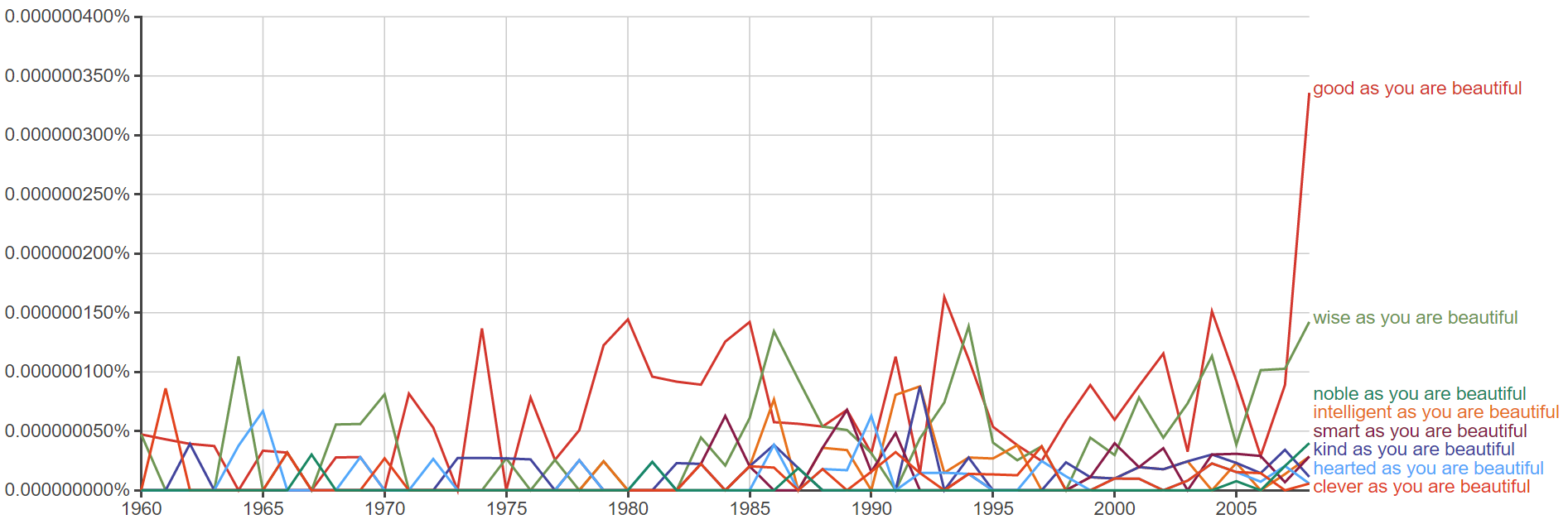I'm just wondering what it is about this construction that makes it sound "incorrect" even though technically it is grammatically correct. Is it an awkwardness arising from a lack of cadence, or rhythm of the sentence? Is it a case of rhetorical anaphora* just evolving to be more popular rather than rhetorical repetition? I'm wondering if the popularization of this construct is more due to chance than to any underlying logic.
*anaphora (OED): Grammar ~ The use of a word referring to or replacing a word used earlier in a sentence, to avoid repetition, such as do in I like it and so do they.
Google Ngrams: " * as you are ADJECTIVE "
Google Ngrams: " * as you're ADJECTIVE " (no results)

